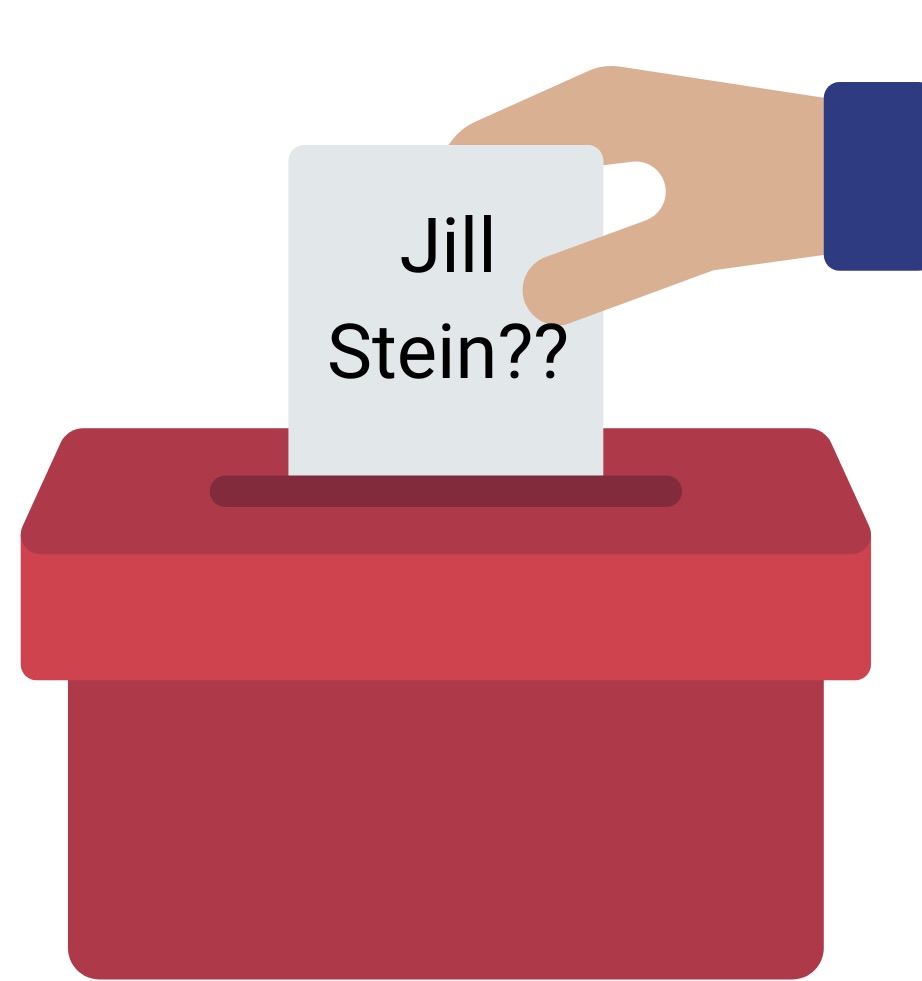As the United States gears up for another presidential election, many issues continue to divide the nation. Amongst this division, some Americans, myself included, feel as though neither of the known major-party candidates, the Vice President Kamala Harris and former President Donald Trump, accurately represent their views on major policy issues. For example, Harris has made it clear she will not ban fracking, and she has reiterated she would not change U.S. policy around sending arms to Israel. On these issues and more, Harris seems to be campaigning on very similar policy positions to her predecessor, President Joe Biden. Voters concerned about the environmental effects of fracking, those disappointed with the Biden administration’s response to environmental issues in general, or those who believe that the U.S. provides overly much unconditional military support to Israel may be hesitant to vote for Harris. Voting for Trump is no better alternative to Harris for those concerned about these issues. He has said Israel must “finish the problem” in its war against Hamas, a statement callous to the deaths of tens of thousands of Palestinian civilians, and he infamously withdrew from the Paris Accord, one of the only substantial international agreements to limit greenhouse gas emissions.
However, the solution for voters concerned about these issues is not to simply hope the Harris administration becomes more responsive to their concerns and “vote blue no matter who.” Rather, I encourage voters to consider voting for Jill Stein, the 2024 presidential candidate of the Green Party. Stein’s presidential platform includes devoting $650 billion per year to support the manufacture of renewable energy and clean transportation technology, passing a complete ban on fracking, and ending military aid to Israel until Israel complies with international law. For those unsatisfied with Trump’s or Harris’ policy proposals, Stein may be a more accurate representation of their beliefs and their vision for the future.
While Stein’s policy plan sounds promising, some may argue that not voting for Harris is as good as voting for Trump. Within the current electoral system, splitting the vote between two candidates closer to the left of the political spectrum may inadvertently result in some states’ electoral votes going to Trump instead, a prospect neither Stein voters nor Harris voters want. For the confusing swing states such as Arizona, Georgia, Michigan and Nevada, along with states North Carolina, Pennsylvania, and Wisconsin, splitting the Democratic vote is a very real possibility. I would encourage anyone voting in these states to vote for Harris to prevent Trump from being elected.
However, the fact that people in these states might be forced to vote for someone who does not accurately represent their vision for this country highlights the true problem we are facing: a problem with our electoral system. American voters who feel unsatisfied with vice president Kamala Harris’ response to the Israel-Palestine conflict and the climate crisis but also feel pressured to vote for Harris to prevent Trump from being elected need to make their dissatisfaction clear. For this reason, I encourage anyone not voting in one of the aforementioned states to vote for Stein instead of Harris, as I will, come Nov. 3. To be clear, I do not expect this to result in Stein being elected, though that would be a welcome surprise. Rather, I believe voting for Stein better reflects the values I believe in and the direction I would like to see the country move in. While I admire other movements, such as the Uncommitted National Movement, that are encouraging people not to vote for either of the major party candidates, I believe Stein’s platform is a more concrete representation of the values I hold. In this election, I think it is important to vote for someone who is committed to finally ending the Israel-Palestine conflict and the climate crisis.
Stein garnered 1.4 million votes in the 2016 election, a clear demonstration that many Americans are unsatisfied with the major party options. Her return to the presidential race in 2024 is the perfect opportunity for environmentalists and peace activists in majority blue states to show the Democratic Party that not all left-leaning voters completely agree with the Biden administration’s current decisions. Stein said, “The Democrats have betrayed their promises for working people, youth, and the climate again and again, while Republicans don’t even make such promises in the first place.” I encourage voters who resonate with this sentiment to vote for Stein. Regardless of what critics in the Democratic Party may say, voting for Stein is not throwing away a vote. Rather, it is a firm commitment to one’s values in spite of an electoral system that refuses to make space for third-party candidates. At the awaited 2024 Democratic National Convention, apparently, the Uncommitted National Movement delegates exposed that they were denied a speaking slot and later, it was reported that Harris told protestors to “Be quiet unless you want to elect Trump.”
Just recently, Nevada’s State Democratic Party sued the state’s Green Party to keep Stein off the ballot. These actions demonstrate the dismissive nature of the Democratic Party when confronted with criticism from its left wing under the guise of party unity. Voters frustrated with this dismissiveness need to make their voices heard, and, as I have argued, the best way to do that is by voting for Jill Stein. Regardless of who votes for who, I hope each and every voter takes the time to deeply consider their own values and which figure best represents them. Additionally, the presidential election is not the only election happening this fall; 33 Senate seats and all 435 House of Representatives seats are up for re-election, and many states have ballot initiatives up for a vote on Nov. 3. There are many ways to make one’s voice heard, and I urge everyone to take the utmost advantage of them.
Stuart Cremer, FCRH ’26, is an English and environmental studies major from Mountain View, California.
















































































































































































































